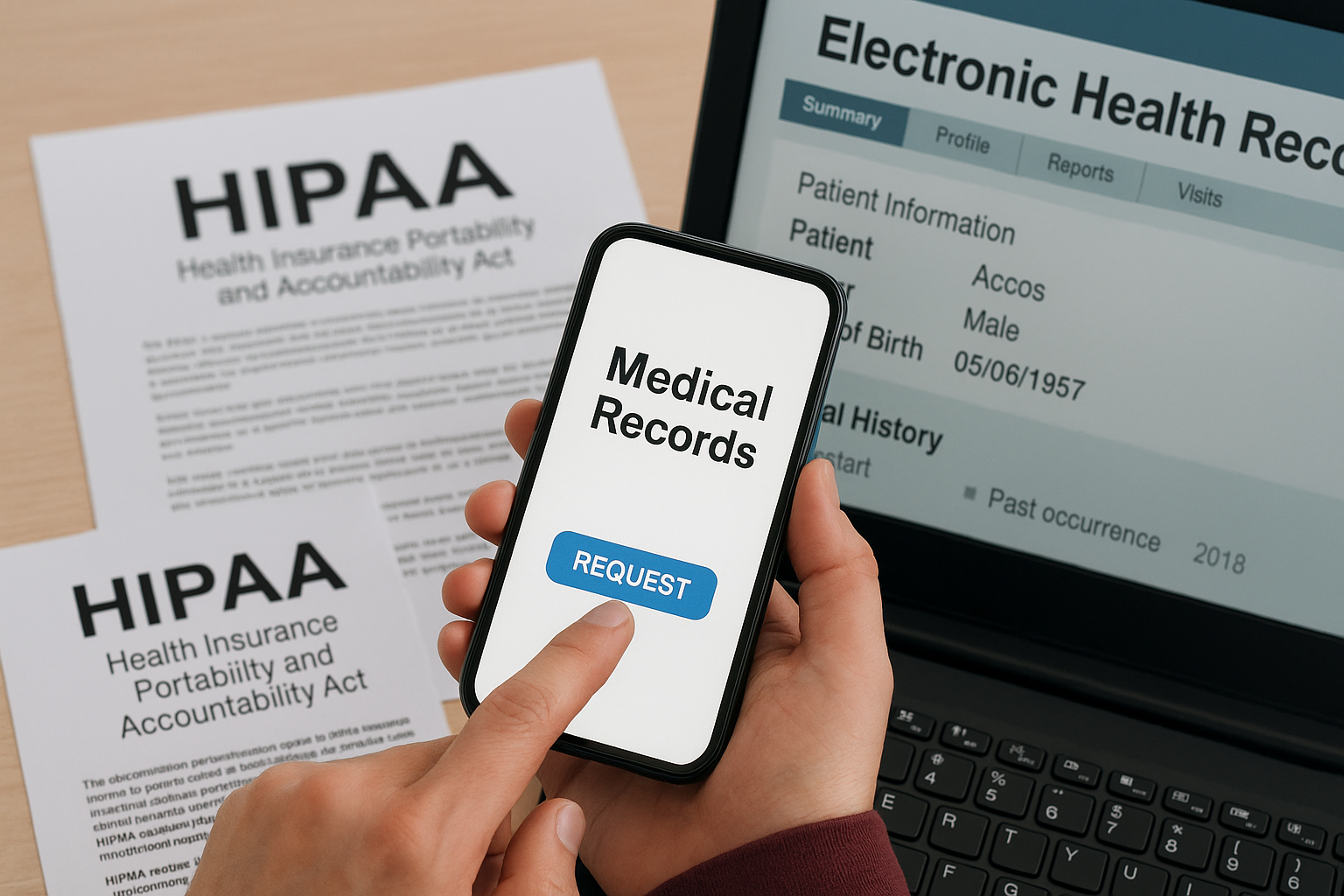health
The Tripledemic Crisis: COVID-19, Influenza, and RSV Collide

Doctors and health officials are issuing warnings about an upcoming “tripledemic” this winter, involving the simultaneous spread of COVID-19, influenza, and respiratory syncytial virus (RSV). These viruses, each capable of causing serious illness, are of particular concern because of their potential to overwhelm healthcare systems when they peak at the same time. The UK’s NHS and other health organizations are preparing by rolling out vaccines, especially targeting vulnerable populations such as the elderly, children, and those with underlying health conditions.
The RSV vaccine is being offered to older adults and pregnant women for the first time. This vaccine has been shown to reduce severe lung infections among newborns, which could help ease the expected burden on hospitals. Health officials are also emphasizing the importance of flu and COVID-19 vaccinations, particularly for those at high risk, as the vaccines can reduce the severity of illness and prevent hospitalizations (Express, The Independent).
The concern about a tripledemic arises partly from reduced population immunity due to several years of pandemic-related precautions, such as masking and social distancing. This reduction in exposure to common respiratory viruses means more people are now vulnerable, especially younger children who missed early exposure to RSV. The main message from healthcare providers is to get vaccinated, practice good hygiene, and take precautions like avoiding indoor gatherings when sick (Yale Medicine).
The overlapping symptoms of these viruses—including fever, cough, and fatigue—can make it difficult to distinguish between them without testing. Hence, people experiencing severe symptoms, such as breathing difficulties, are urged to seek medical attention promptly. Taking preventive measures such as maintaining up-to-date vaccinations and avoiding exposure to sick individuals can help mitigate the impact of the upcoming tripledemic.
business
🇲🇦 King Mohammed VI’s Speech Sparks Heated Debate in Parliament — “جيل زد يُجيب”
Rabat — October 2025
Inside Morocco’s Parliament, tension and reflection filled the air just hours after His Majesty King Mohammed VI delivered his opening-session speech. What was meant as a national roadmap quickly turned into a day of open confrontation, emotional testimonies, and unexpected admissions from members of both majority and opposition blocs.
🏛️ A Speech That Touched Nerves
The King’s address, described by analysts as “direct and reform-oriented,” called for greater social justice, job creation, and balanced development across Morocco’s regions.
“No village left forgotten, no coast without a hand,” the King declared — a message that resonated deeply with citizens and lawmakers alike.
Within hours, parliamentary corridors buzzed with interviews, arguments, and introspection. Some MPs hailed the speech as “a moral reset,” while others questioned whether the government was capable of turning royal vision into tangible results.
🧠 From Rabat to the Sahara — Gen Z Responds
Younger members of Parliament — labeled as جيل زد (Gen Z) — became the focus of cameras and public curiosity. Many expressed frustration at what they see as a widening gap between political promises and everyday realities faced by Moroccan youth.
“The King spoke about unity and work. We agree — but the youth need a chance to prove themselves,” said one 28-year-old deputy.
“We have the energy; the system just needs to open its doors.”
Another young MP caused a social-media storm after saying that “in some ways, Moroccan social values are stronger than Germany’s.”
Critics accused him of downplaying Europe’s economic strength, while others applauded his pride in Moroccan family cohesion.
He later clarified his words, emphasizing that every nation faces challenges — and that Morocco’s real wealth lies in its people.
💬 Resignation, Reflection, and Responsibility
Just a week earlier, one deputy had submitted his resignation in protest over what he called “a lack of listening to the new generation.”
After the King’s address, he withdrew it.
“The royal speech gave me renewed hope. This is not the time to quit — it’s time to work,” he told reporters.
Across party lines, both RNI and PAM youth wings echoed similar messages: commitment to reform, but also impatience with bureaucracy.
Several MPs criticized ministers who, they said, “do not answer calls, do not reply to written questions, and have lost touch with citizens.”
⚖️ Opposition Voices: ‘A Government in Denial’
Members of the opposition used the session to accuse the cabinet of denial and poor communication, arguing that ministers are “living in a different reality” from citizens struggling with prices and unemployment.
“The royal messages were clear,” said one opposition leader. “The problem is not the King’s vision — it’s implementation.”
🌍 Morocco’s Path Forward
Analysts note that the King’s address aligned with long-standing themes: national cohesion, balanced territorial development, and respect for dignity in public service.
But the 2025 context — economic pressure, youth disillusionment, and the digital activism of Gen Z — gives these calls new urgency.
“This generation communicates differently,” said a policy researcher. “If institutions don’t adapt, they’ll lose credibility.”
🕊️ A Message Beyond Politics
As the parliamentary session ended, one young MP summed up the mood:
“الملك تكلّم… ونحن سنُجيب بالعمل — The King spoke, and we will answer through action.”
For now, the chamber that often echoes with partisan debates found itself united — briefly — under a single message:
Morocco’s future belongs to its youth, but responsibility belongs to everyone.
business
From Potatoes to Paleontology: Morocco’s Big Wins on August 14, 2025

From potatoes to paleontology, Morocco posts gains across economy, science, and sport, while DV-2025 visa delays put pressure on applicants.
Morocco’s potato exports surged after a five-year slump, paleontologists uncovered the country’s oldest Turiasaurian teeth in the Middle Atlas, and UIR teamed with Cisco on a new AI & cybersecurity center. Authorities also approved the Amazigh name “Massinissa,” Morocco beat Zambia 3–1 at CHAN, and DV-2025 lottery winners sounded alarms over stalled interviews. FreshPlazaMorocco World News+3Morocco World News+3Morocco World News+3Hespress
The Briefing
Morocco’s news cycle on August 14, 2025 offered a snapshot of a country diversifying—export recovery in agri-food, frontier science with Jurassic-era finds, digital capacity-building through a new AI/cyber hub, and a culture-rights win on Amazigh naming—rounded off by a CHAN victory and visa-processing anxieties for DV-2025 winners. FreshPlazaMorocco World News+3Morocco World News+3Morocco World News+3Hespress
Economy — Potatoes Are Back
After five years of decline, Morocco’s ware-potato exports rebounded to 42,900 tons worth US$14.9 million between July 2024 and May 2025—a 5.7× increase versus the prior season. Analysts credit renewed West African trade links and firmer European demand. The uptick helps farmers and cold-chain logistics while testing resilience ahead of the 2025–26 campaign. FreshPlaza
Explainer takeaway: A stronger potato campaign increases rural incomes and stabilizes supply chains; monitoring fertilizer prices, shipping rates, and weather will indicate whether the rebound is durable.
Science — 160-Million-Year-Old Giants
Researchers identified three dinosaur teeth from the Middle Atlas (El Mers III Formation), marking the oldest evidence of Turiasauria on mainland Africa—a Middle Jurassic lineage previously best known from Iberia. The peer-reviewed study tightens biogeographic links between North Africa and Europe and invites fresh fieldwork in Boulemane province. Morocco World NewsYabiladiResearchGate
Explainer takeaway: Morocco’s Jurassic strata continue to fill global fossil gaps, boosting scientific tourism and training opportunities for local geoscience programs.
Technology — UIR × Cisco Unveil AI & Cybersecurity Center
The International University of Rabat (UIR) and Cisco signed an MoU to create a Cisco EDGE Incubation Center focused on AI and cybersecurity, aligning with Morocco’s Digital 2030 ambitions. The hub aims to link academia, startups, and public services while leveraging Cisco Networking Academy pathways. Morocco World NewsMap NewsMedafrica TimesLinkedIn
Explainer takeaway: Expect new pipelines for SOC talent, secure-cloud skills, and AI safety research—areas where Morocco seeks digital sovereignty and exportable know-how.
Society — A Win for Amazigh Naming Rights
Following an initial refusal, Meknes authorities approved the Amazigh name “Massinissa.” The reversal reflects ongoing normalization of Amazigh names in civil registry practice and reduces administrative friction for families seeking culturally rooted identities. Morocco World NewsHespressFacebook
Explainer takeaway: Documentation shapes access to education, healthcare, and travel; clearer acceptance of Amazigh names streamlines everyday life and affirms linguistic rights.
Sport — CHAN Boost: Morocco 3–1 Zambia
Morocco’s locally based national team defeated Zambia 3–1, strengthening its CHAN 2024 (played in 2025) campaign and securing a quarterfinal berth. Wins at CHAN raise player visibility, support domestic leagues, and can lift transfer valuations for homegrown talent. Hespress
Explainer takeaway: CHAN is a showcase for domestic football systems; Morocco’s result supports the broader talent pipeline from Botola clubs to continental competition.
Migration — DV-2025 Interview Delays
DV-2025 lottery winners in Morocco report stalled interview scheduling at the U.S. Consulate in Casablanca as the September 30, 2025 fiscal-year deadline nears, raising fears that selectees could time out despite “current” case numbers. Civil-society calls urge transparent scheduling and capacity updates. Morocco World News
Explainer takeaway: Diversity Visas are time-bound; absent appointments by the end of the fiscal year, eligibility ends—even for qualified selectees. Applicants should ensure DS-260s are complete and monitor consular notices.
What to Watch Next
- Agri-exports: Does the potato rally carry into Q4 logistics and pricing? FreshPlaza
- Science & tourism: Will new Middle Atlas digs expand fossil trails and museum programs? Morocco World News
- Talent & tech: Can the UIR–Cisco hub seed startups and feed national SOC capacity by 2026? Morocco World News
- Civil registry: Are further Amazigh naming cases resolved consistently across regions? Hespress
- CHAN: Injury management and fatigue as fixtures compress. Hespress
- DV-2025: Any scheduling updates from Casablanca before Sept. 30. Morocco World News
health
Feds Issue New HIPAA Guidance to Speed Patient Record Access

HHS OCR’s updated FAQs clarify disclosures to value-based care groups and what must be released under the “designated record set,” aligning with CMS’s new interoperability push.
Federal regulators issued fresh HIPAA Privacy Rule guidance to remove friction when patients ask for their own medical records. New FAQs from HHS OCR clarify what information is included in a “designated record set” and confirm providers may disclose PHI to value-based care arrangements for treatment—moves that dovetail with CMS’s new interoperability framework.
Federal health officials have published new HIPAA FAQs aimed at speeding patient access to records and smoothing data sharing for treatment, the latest step in Washington’s campaign to make health information easier to obtain and exchange across apps, providers and health plans.
- The Department of Health and Human Services’ Office for Civil Rights (OCR) released updated HIPAA Privacy Rule FAQs clarifying two issues: (1) when providers may disclose protected health information (PHI) to value-based care arrangements for treatment, and (2) what constitutes a “designated record set” that must be produced to patients upon request.
- The refresh complements CMS’s recently announced Health Tech Ecosystem initiative and Interoperability Framework, a voluntary, standards-based blueprint intended to expand patient access to data through modern identity and app-based exchange.
- OCR’s FAQ reiterates that disclosures of PHI to entities participating in value-based care—such as ACOs—are permitted for treatment without patient authorization under the Privacy Rule.
- The “designated record set” extends beyond the clinical chart to billing, claims, case management and other records used to make decisions about an individual; psychotherapy notes and certain non-decision records remain excluded.
- The guidance lands as the administration presses for a “patient-centric, digital healthcare ecosystem,” recruiting major tech and health systems to enable more seamless, secure sharing of records through vetted apps and modern identity—while privacy advocates continue to scrutinize guardrails.
“The FAQs don’t rewrite HIPAA, but they do remove ambiguity that slows down releases of records and collaboration in value-based care.” — Marianne Kolbasuk McGee, BankInfoSecurity reporter, summarizing expert reactions to OCR’s move.
“For those who understand HIPAA, nothing is new. Clarification on items like peer review not being in the designated record set likely stems from recurring inquiries.” — Rachel V. Rose, regulatory attorney, on the practical impact of the FAQs.
“This framework is a voluntary, open, standards-based blueprint to put patients and providers first.” — Centers for Medicare & Medicaid Services (CMS), Interoperability Framework overview.
How requests should be fulfilled now
- Scope: Covered entities must provide all PHI within any designated record set—not only the EHR “chart”—including billing and claims records used to make decisions about the patient.
- Exclusions: Psychotherapy notes kept separately and PHI not used to make decisions (e.g., certain business planning docs) remain out of scope.
- Format & timeliness: HIPAA’s right-of-access timeline and format rules still apply; delays due to uncertainty over record-set boundaries should diminish as staff lean on the clarified definitions.
Disclosures for value-based care
- Permitted without authorization: Sharing PHI with value-based care participants for treatment is allowed under the Privacy Rule’s existing treatment exception; the FAQ confirms this explicitly.
- Guardrails: Minimum necessary does not apply to treatment, but entities should maintain access controls, audit logging and BAAs when appropriate.
Mitigations & compliance steps
- Update release-of-information (ROI) SOPs and patient-access policies to reflect the designated record set definition.
- Map systems beyond the EHR (billing, CRM, care management) to ensure complete responses.
- Train ROI staff on exclusions (e.g., psychotherapy notes) and denial pathways.
- For value-based care data flows, document treatment purpose, data minimization where possible, and security controls.
Impact & Response
Who’s affected: Patients seeking records; hospital HIM/ROI teams; value-based care networks; app developers aligning to CMS’s ecosystem. Expected outcome: Faster, more consistent access; fewer disputes over what must be released; clearer legal footing for treatment-related sharing.
Long-term implications: The FAQs, paired with CMS’s interoperability plan, signal tighter federal alignment on access and exchange, as OCR also steps up Security Rule modernization and right-of-access enforcement—pressure that will be felt most by smaller providers.
Background
HIPAA’s right-of-access has been repeatedly emphasized since 2019 enforcement initiatives, yet organizations still stumble over the breadth of “designated record sets.” The latest FAQs aim to standardize interpretations while the administration’s interoperability initiative seeks industry commitments for app-based, identity-driven access.
Conclusion
The federal message is consistent: patients should get their data quickly and completely, and providers should share for treatment without undue friction. The new FAQs won’t upend HIPAA, but they should streamline compliance and accelerate the shift to interoperable, patient-centric data exchange.
Sources
- BankInfoSecurity — “Feds Issue More HIPAA Guidance in Push for Patient Access” (Aug. 13, 2025).
- HHS OCR — FAQ: Individuals’ Right of Access and the “Designated Record Set.”
- HHS OCR — FAQ: Disclosing PHI to value-based care participants for treatment.













